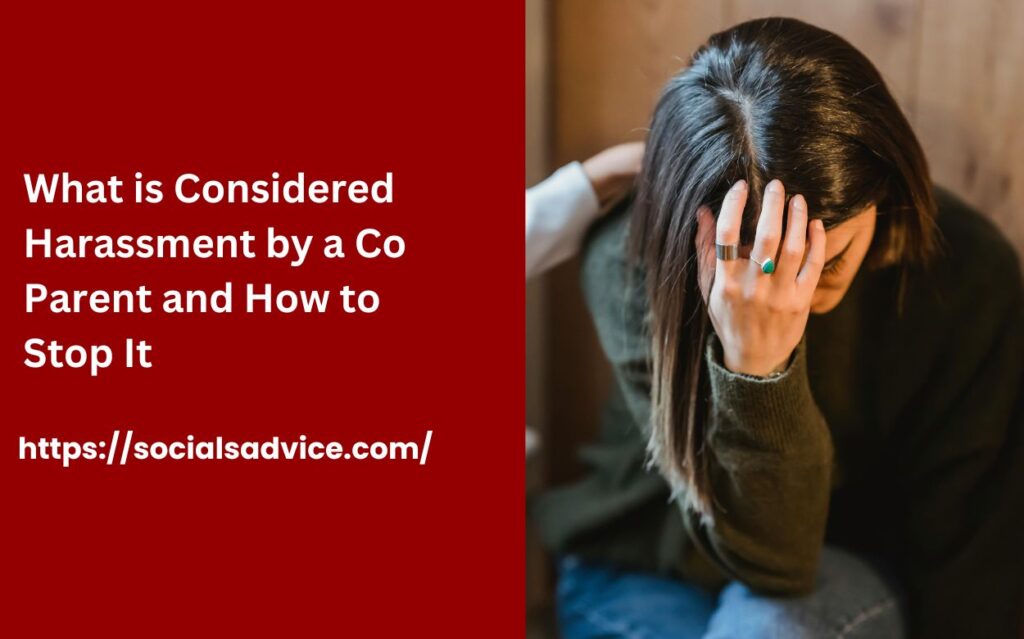
Co-parenting is an approach where equal support, communication, judgment, interaction, and care are essential. It is very important to have rhythm or harmony between parents in co-parenting matters.
In this way, these can better navigate the overall well-being of children. When co-parenting is healthy in communication, compromise, decisions, and harmony, children can have a better future and a successful life.
Sometimes, co-parenting can be very difficult to deal with, especially when the co-parent is a really uncooperative person. In fact, it’s a state of stress, depression, disrespect and uncertainty. In order to ensure the long-term support and care of the children, it is important for each troubled co-parents to find effective ways to better deal with the uncooperative co-parents.
In this blog, we share effective tips for every struggling co-parent to better deal with uncooperative parenting without compromising the quality, safety, education, health care, peace, and mental and physical safety of children, and highlight practical strategies. Keep your eyes peeled for more!
Why Do Parents Become Uncooperative?
Every situation is unique, but the parenting relationship is often affected by new relationships, new jobs, new children, changes in life circumstances, and the changing needs of the baby and child, just to name a few.
Lawyer Cassandra Golder has said, that I believe that changes in co-parenting are often based on fear. One parent is afraid of losing control in some way and they do not cooperate in co-parenting. This often causes the parent to act or become difficult, and in turn the other parent may do the same.
This snowball effect can destroy the co-parenting relationship and it takes time, and effort to rebuild that trust and get on the same page. Although you may hesitate to add the court. A new parenting plan can help re-establish boundaries and expectations, and ultimately improve the co-parenting relationship.
Practical Advice for Dealing with Uncooperative Co-Parents
When dealing with uncooperative co-parenting, you cannot get ahead of the children’s needs and interests. It always needs to be kept in mind that your children are your priority.
So, to prevent yourself and your child from conflict, stress, depression, loss, misbehavior, and challenges in co-parenting with an uncooperative partner, you should pick up a few practical tips. Here are some effective tips that every co-parenting should choose to better deal with an uncooperative co-parent. Read on!
Establishing Boundaries
When you’re juggling co-parenting responsibilities, it’s really important to set certain boundaries for your children’s well-being to be professionally handled every step of the way – especially uncooperative ones. In the case of participating co-parents.
When you keep abusive and abusive co-parents at bay, you can prevent your child’s future from being ruined. It is really important to give utmost importance to the protection of children. When the abusive and uncooperative co-parent is overstepping the bounds and starting to harm your child and you, it’s best to set boundaries and seek legal help immediately.
Remain Focused on Children’s Needs and Desires
Conflicts and challenges are very common for co-parents with an uncooperative partner. Not only you, but the children’s mental and physical health is affected by the abuse of abusive, unethical, frivolous, and abusive co-parenting.
So, in this situation, it is really important for you to always focus on the needs, wants, and interests of the children. It helps your children grow up better by improving their overall lifestyle. Therefore, it is your utmost responsibility to ignore abusive and uncooperative co-parents with your child’s legal support – and raise your children in a safe and healthy environment.
Explore Professional Assistance
Long-term co-parenting sessions are a really effective way to consider when thinking about dealing with uncooperative co-parenting. When you are getting professional help, you feel relaxed and effectively contribute to improving the overall well-being of your children.
Without feeling stressed and afraid of abuse or unpredictable attitudes from an uncooperative co-parent, you can prioritize your children’s needs over what they want emotionally, physically, and mentally.
Conclusion
While wrapping up the essay, remember that you have to be patient, calm, and strategic when dealing with your uncooperative co-parenting. This guide is really helpful for struggling co-parents in co-parenting sessions to choose practical, proven strategies for turning a tumultuous journey into one of empowerment, growth, and resilience.
You can enter the world of co-parenting by building your confidence, strength, and communication skills along with legal help. Always remember, if you are dealing with uncooperative co-parents, you must be flexible, patient, strategic, dedicated, a good listener, and steady.
If you make a mistake in dealing with uncooperative co-parents – not only you but also your children are exposed to unexpected disputes, conflicts, and misbehavior from uncooperative partners.
Frequently Asked Questions
Why is co-parenting so hard?
Building a strong and harmonious relationship after deciding to separate can be very difficult. Moreover, sharing responsibilities, making decisions for the child first, and accepting that parenting styles, home environments, and schedules may differ require a high level of acceptance and communication.
How can I communicate with an uncooperative co-parent effectively?
By setting specific boundaries with a professional approach, you can enable yourself to effectively communicate with your uncooperative co-parents to the collaborative stage. You should keep your communication with your uncooperative partner focused entirely on the children’s interests, well-being, needs, and health care.
How can I protect my children from the effects of an uncooperative co-parent?
If, in a legal co-parents session, your co-parenting continues to violate legal rules, orders, custody agreements, legal aid, documents, and ethical practices – you should seek legal and professional help. When you go through professional legal channels with legal help, you can easily protect your children from the effects of uncooperative co-parenting.
How can I better cope with the stress and frustration of co-parenting with an uncooperative co-parent?
When you experience the stress and frustration of co-parenting with an uncooperative co-parent, the best thing you should consider is seeking professional help and guidance. The most authentic approach you can consider during difficult times is to develop a listening ear, which will enable you to improve the overall health of children.
Is it possible to the co-parent effectively with an uncooperative partner?
Dealing with uncooperative co-parents is extremely difficult – but not impossible. You can use the right and effective approach to co-parenting with an uncooperative partner. You should try to ignore the personal conflicts of the parents and prioritize the needs, wants, interests, and well-being of the children. Likewise, you can also set specific boundaries for helping your children professionally, even when you’re communicating with an unsupportive partner.
How do I handle disagreements with an uncooperative co-parent about parenting decisions?
When needed, you can agree. But if no compromise is working in the situation to handle the uncooperative co-parents, you may be better off involving a mediator or counselor. A counselor can help you find better solutions to the challenges and differences you face when making parenting decisions due to uncooperative co-parenting.


